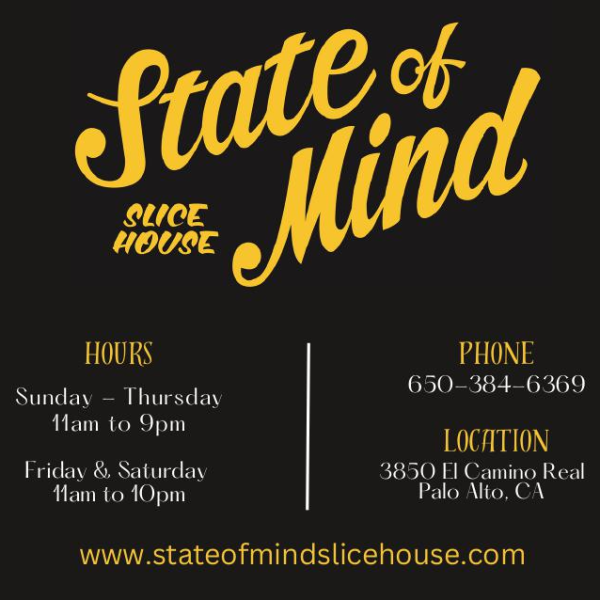‘Don’t Look Up’: A persuasive parody of the present
March 27, 2022

What happens when you discover a potentially apocalyptic danger that can end all human life as we know it but live in a society where no one could care less? Well, this recipe for disaster depicted in Director Adam McKay’s Academy-nominated “Don’t Look Up” tells an exaggerated, humorous, story of the pitfalls of ignorance in society — one that brilliantly hits close to home.
The film follows a low-level Michigan State University astronomy professor, Randall Mindy (Leonardo DiCaprio) who, alongside his assistant Kate Dibiasky (Jennifer Lawrence), has just discovered a comet that threatens to erase the existence of humanity. The pair are faced with the impossible task: telling the world and, more importantly, making them care.
Although determined to inform people of this detrimental discovery, the duo is challenged by a seemingly clueless society who cannot believe that their lives will end, despite having hardcore data proving the existence of the comet. Over the course of the film, we get a deeper insight into the ignorance of the government, media and citizens, and their frustrating reactions to this impending doom.
The film is nominated for four award categories at the 94th academy awards including Best Picture, Best Original Screenplay, Best Original Score, and Best Film Editing. It falls quite suitably in most of these fields, but probably is best represented for its unique, powerful, depiction of the relevant, pressing problems in the world.
“Don’t Look Up’s” biggest and potentially most controversial take is its parallel on the scope of modern world issues – namely the disputes surrounding climate change. The emergence of a comet that will almost certainly hit Earth yet is still doubted by the world is McKay’s way of expressing a lack of belief in reason and scientific discovery.
This attempt hits its target on multiple fronts – primarily, by providing an acute, insightful view of the overwhelming ignorance on Earth. The film presents every major character besides our two protagonists as flawed, incompetent, and ignorant – especially members of the government, media and wealthy business owners. This representation provides a case against these members with real-life parallels, implying that when faced with risks such as climate change, leaders of our society are too inept to deal with the challenges and that as a whole we would be in danger – which isn’t too far off from the truth.
Although meant as a satirical take that grandly exaggerates its plot, the film hits its intended purpose — to highlight the growing ignorance of society towards climate change — surprisingly well. It almost feels as if McKay is shouting at us for turning a blind-eye to the dangers of this potentially world-ending threat through exaggerating the situation, and by providing all these parallels that leave it to the audience to connect the dots one by one. This subtle, yet brilliant, incorporation of such a powerful and relevant theme gives the film new meaning and leaves viewers reflecting days after watching.
Despite the dramatic, world-ending sentiments, humor is one positive aspect that keeps the tone of the film light-hearted. Whether through its exposition of Dr. Mindy’s anxious speaking style and socially-awkward character, or the interactions with President Orlean (Meryl Streep) and her trust-fund, comical son and Chief of Staff (Jonah Hill), McKay’s comedy makes the film engaging and enjoyable to watch. Additionally, the comedy feels cohesive, though not overly dominant, with the big, hard-pressing social themes that, by themselves, come off as too grave and depressing.
The all-star cast of some of Hollywood’s biggest stars also puts the movie in deeper respect, with the acting being on par with each character’s respective personality. Leonardo DiCaprio as Randall Mindy is especially proficient in expressing a man with a lack of self-confidence but with a moral-obligation to inform the world of an essential finding. DiCaprio presents him with both his expressive body language, and rapid changes of characteristic emotion through such scenes as the shocking, aggravated, rant on the popular media news show, “The Daily Rip,” that beautifully expresses a frustrated man completely fed-up with the world he lives in. Despite complaints of the film being stacked with too many great actors, each one fits their role surprisingly well, and all the more keeps the storyline fluid and engaging.
Overall, “Don’t Look Up” holds a grip on the audience through its humor and remarkable acting that brilliantly fuses big-picture problems surrounding climate change to provoke deeper reflection of the audience on the eternal question: what is wrong with the world?
“Don’t Look Up”
2 hours, 25 minutes
Rated: R for language throughout, some sexual content, graphic nudity and drug content
Directed by: Adam McKay
Starring: Leonardo DiCaprio, Jennifer Lawrence, Meryl Streep








